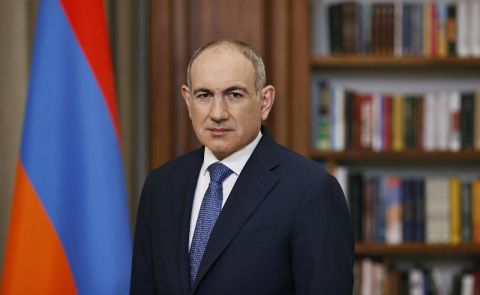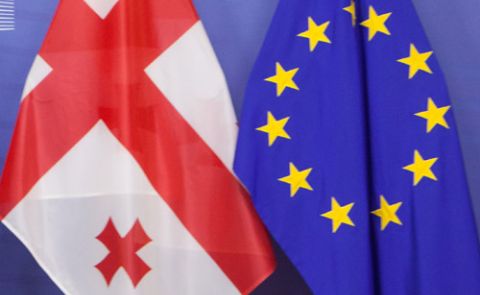
Armenian Authorities Blame Russia for Azerbaijan's Checkpoint Along Lachin Corridor

At a government session on April 27, Armenian Prime Minister Nikol Pashinyan said that the Russian peacekeeping contingent in Karabakh should control the Lachin corridor and ensure its normal operation.
"Apart from Russia, no one else should exercise control in the Lachin corridor. Azerbaijan should not impede the free movement through the corridor. This is stipulated in the November 9, 2020, trilateral statement," he said.
Pashinyan stressed that the rights and security of the Armenians of Nagorno-Karabakh should be the subject of negotiations between Stepanakert and Baku within an international format. "Azerbaijan has consistently aggravated the situation in the region, this time by illegally setting up a checkpoint in the Lachin corridor linking Nagorno-Karabakh with Armenia. If until now the Lachin corridor has been closed under the pretext of a false environmental action, now it is officially closed by the Azerbaijani government," he said.
The Prime Minister noted that this escalated tensions in the region and aggravation of the humanitarian crisis in Nagorno-Karabakh. "The international community this time gave a clear assessment to establishing the Azerbaijani checkpoint in the Lachin corridor. But it is also important to record the real and underlying goals of this and the series of actions that preceded it. The goal is ethnic cleansing and genocide of the Armenians of Nagorno-Karabakh. That should be the subject of attention - of our and the international community," Pashinyan said.
Response from Azerbaijan to Pashinyan
In response, the Azerbaijani Foreign Ministry stated, "We categorically reject the absurd claims made by the Prime Minister of Armenia, Nikol Pashinyan, during his speech at the government meeting on April 27, regarding the establishment of a checkpoint on the Azerbaijan-Armenia border."
"Any intervention of the Armenian side in the issue of establishing a border checkpoint in its sovereign territory, which is an internal matter of Azerbaijan, is a claim against the sovereignty and territorial integrity of Azerbaijan and is against the commitments undertaken by Armenia in Prague and Sochi, as well as all the norms and principles of international law. Such statements of the Armenian side, besides not contributing to peace and tranquility in the region, aim to deliberately increase tension," the report added.
"Evaluating the establishment of this station, which will regulate the entry-exit mode from the border, as closing the road is completely wrong. Besides, contrary to the claims of the Prime Minister, according to the Tripartite Declaration, Azerbaijan has powers and sovereign rights over the Lachin Road. As always, Azerbaijan guarantees the safety of citizens, vehicles, and cargo moving on the Lachin-Khankendi [Stepanakert in Armenian] road within the framework of its obligations and will continue to take appropriate measures in this direction," it said.
"Instead of making baseless statements, the Armenian side should take a responsible and constructive approach to the negotiations on the peace agreement, which they have refused since last December, comply with the obligations arising from the Tripartite Declaration, including the opening of communications, the complete withdrawal of its forces from the territories of Azerbaijan, and refrain from taking steps against the territorial integrity and sovereignty of Azerbaijan," the ministry emphasized.
Armenian Security Council Secretary blames Russia
Moreover, Armenian Security Council Secretary Armen Grigoryan blamed Russia for failing to keep the Lachin corridor open. "The Russian Federation is responsible for everything that is taking place in the corridor. The Russian Federation must act so that the 120,000 Armenians who live in Nagorno-Karabakh are not ethnically cleansed. Because the only purpose of these actions by Azerbaijan is to make the ethnic Armenian population of Nagorno-Karabakh leave their homes. Azerbaijan’s highest leadership is not hiding this intention presenting ultimatums to [the] Karabakh Armenians, saying they either must obtain Azerbaijani citizenship or look for another place of residence," Grigoryan said.
"We have asked our Russian colleagues many times why this situation has arisen. This has happened many times: First, Azerbaijanis took control of Khtsaberd [Çaylaqqala in Azerbaijani] and Parukh villages in Karabakh, which were in the zone of responsibility of Russian peacekeepers, then they blocked the Lachin corridor near Shushi, now they set up a checkpoint near the border with Armenia. These actions are no longer incidents but a reality," Grigoryan said.
He recalled the security promises Russian forces had given Nagorno-Karabakh inhabitants until 2020. "People in Nagorno-Karabakh returned to their houses after being reminded of these assurances. However, these guarantees are ineffective in real life. The risk of ethnic cleansing is increasing," the official added.
He refuted claims made by the Armenian opposition that the government is responsible for the current situation, asserting that pro-Russian views have always predominated in Nagorno-Karabakh and that the government has not altered the country's foreign policy course.
Remarks from the Russian Foreign Ministry
On the same day, Russian Foreign Ministry Spokeswoman Maria Zakharova said that it was essential that the official Yerevan contribute to the search for mutually acceptable solutions after Azerbaijan set up a checkpoint in the Lachin corridor on April 23, effectively obstructing the movement of people and traffic from and to Nagorno-Karabakh. "The corridor is the only land link between Armenia and Nagorno-Karabakh," she added.
"Russia has clearly outlined its position in the Foreign Ministry's statement of April 24. Necessary efforts are currently being made both by the Russian peacekeeping contingent on the ground and through political channels to resolve the situation around the Lachin corridor and bring it back in line with trilateral agreements,' Zakharova emphasized.
Moreover, on April 27, Deputy Minister of Foreign Affairs of the Russian Federation Mikhail Galuzin held separate meetings with Polad Bulbul oglu, the Ambassador Extraordinary and Plenipotentiary of Azerbaijan to Russia, and Vagharshak Harutyunyan, the Ambassador Extraordinary and Plenipotentiary of Armenia to Russia.
See Also

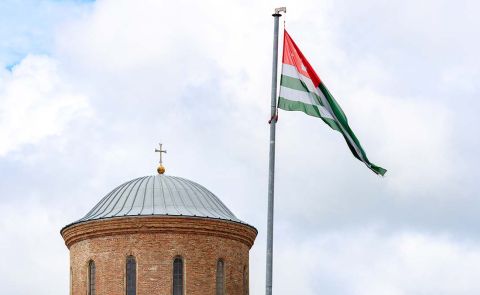
Moscow’s Plan in Separatist Abkhazia Focuses on Naval Logistics, Not Base Establishment
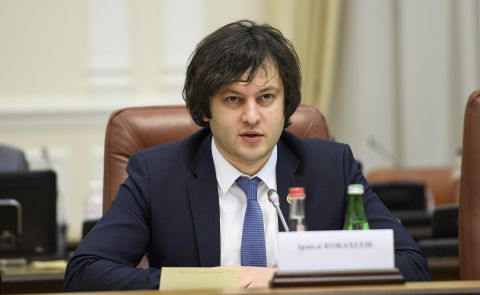
Kobakhidze Announces Full Enforcement of Georgia’s Foreign Agents Law
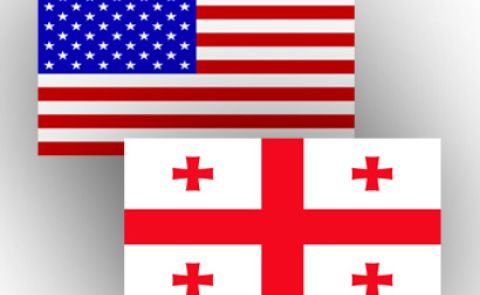
Kobakhidze Meets US Senator Daines to Discuss Bilateral Relations
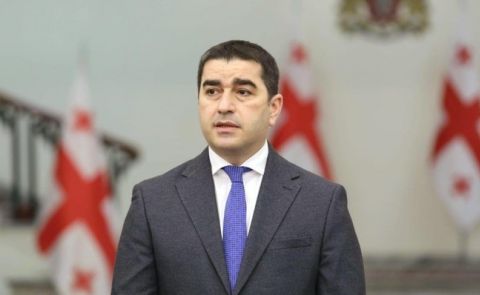
Georgian Speaker Condemns Embassy Travel Warnings as Economic Attack
